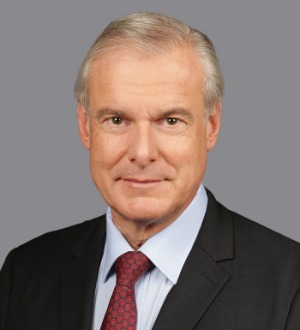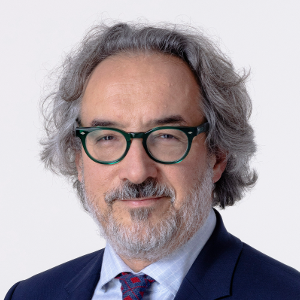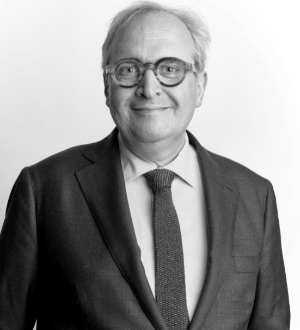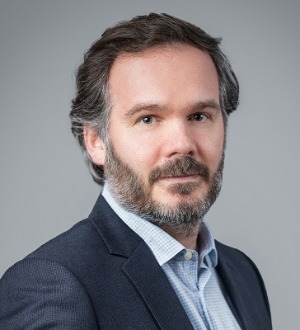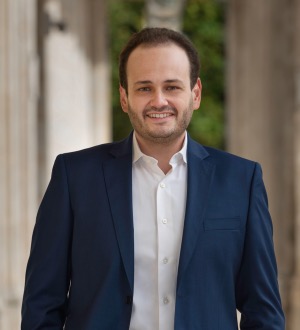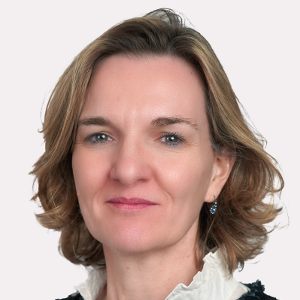Best Lawyers Near You in Paris, France for Information Technology Law
Practice Area Overview
The guide to measuring information and communication technologies in education of the UNESCO Institute for Statistics defines information and communication technologies (ICT) as a "diverse set of technological tools and resources used to transmit, store, create, share or exchange information. These technological tools and resources include computers, the Internet (websites, blogs, and emails), live broadcasting technologies (radio, television, and webcasting), recorded broadcasting technologies (podcasting, audio and video players, and storage devices) and telephony (fixed or mobile, satellite, visio/video-conferencing, etc.)".
As far as definition goes, INSEE refers to an international agreement set by the OECD asserting that the information and communications technology (ICT) includes the following economic sectors:
• Manufacturing sector (manufacture of computers and computer equipment, TV, radio, telephone, etc.);
• Distribution sector (wholesale hardware, etc.)
• Service sector (telecommunications, computer services, broadcasting services, etc.).
Internationally, ICT are often considered as the integration of telecommunications technology, computer, multimedia, and audio-visual. A United Nations report highlights the impact of the convergence of ICT: "Convergence has removed many distinctions between ICT sectors, including broadcasting, computing and telecommunications, and has fostered innovation in non-ICT sectors such as financial services. As a result, end-users access content, services and applications on multiple platforms, increasing the versatility and sophistication of information access and communications use".
In an innovative field by definition, one of the main roles of IT lawyers is to be a link between innovators and managers to ensure the proper legal understanding of regulatory, financial, competitive issues, in particular through risk management. Thus, IT lawyers are in constant contact with the legal and technical departments of their clients to tailor with them the most appropriate solutions to their needs.
International practice per se, information technology law requires lawyers to counsel their clients on international matters such as cross border investment, international trade, and translational regulatory frameworks regarding specific matters such as personal data or spectrum management.
Therefore, IT lawyers advise clients regarding sales agreement, licensing, outsourcing, e-commerce, Internet and broadcasting services, intellectual property, personal data, industry, and administrative regulations. IT lawyers also represent clients before the competent courts and administrative bodies or authorities.
With regard to the technology manufacturing sector, lawyers counsel clients concerning the regulatory framework applicable to the protection of data and knowledge; the technical and legal standards to be considered and the consequences of the use of new technologies.
IT lawyers also advise distributing companies through commercial agreements, licensing, or complex contracts. It may for example include software as a service (“Saas”) or cloud outsourcing agreements.
Companies providing information technology services also need IT lawyers to be advised on transactional and regulatory matters. For example, lawyers will help a company in the whole process preceding and following the release of a new broadcasting service.
Finally, IT lawyers will defend the interest of their clients before any courts regarding civil matters (commercial and intellectual property) and criminal matters (in case of offence related to telecommunication law). Lawyers will also represent clients before administrative and regulatory bodies especially with regard to broadcasting regulations.
Le Guide de mesure pour l'intégration des technologies de l'information et de la communication en éducation de l'Institut de Statistiques de l'UNESCO définit les Technologies de l'information et de la Communication ("TIC") comme un "ensemble d’outils et de ressources technologiques permettant de transmettre, enregistrer, créer, partager ou échanger des informations, notamment les ordinateurs, l’internet (sites web, blogs et messagerie électronique), les technologies et appareils de diffusion en direct (radio, télévision et diffusion sur l’internet) et en différé (podcast, lecteurs audio et vidéo et supports d’enregistrement) et la téléphonie (fixe ou mobile, satellite, visioconférence, etc.)".
L'INSEE quant à elle fait référence à une convention internationale fixée par l'OCDE pour affirmer que les technologies de l'information et de la communication (TIC) englobent les secteurs économiques suivants :
• secteur des producteurs de TIC (fabrication d'ordinateurs et de matériels informatiques, de TV, radios, téléphone…) ;
• secteur des distributeurs de TIC (commerce de gros de matériel informatique…) ;
• secteur des services de TIC (télécommunications, services informatiques, services audiovisuels…).
A l'international, on considère souvent les TIC comme l'intégration des techniques de télécommunication, de l'informatique, des multimédias et de l'audiovisuel. Ainsi, un rapport des Nations Unies insiste sur l'impact de la convergence des TIC : "La convergence a supprimé nombre de distinctions entre les secteurs des TIC, notamment la radiotélédiffusion, l’informatique et les télécommunications, et a favorisé l’innovation dans des secteurs autres que les TIC, tels que les services financiers. Dès lors, les utilisateurs ont accès à du contenu, à des services et à des applications sur de multiples plates-formes, ce qui accroît la versatilité et la sophistication de l’accès à l’information et de l’utilisation des communications."
Matière intrinsèquement internationale, le droit des TIC oblige les avocats à accompagner leurs clients sur des questions d'investissements à l'étranger, de commerce international et de règlementations transnationales dans des domaines particuliers comme les données personnelles ou la gestion des ressources de télécommunication.
Dans un secteur innovant par définition, l'un des principaux rôles des avocats spécialisés en la matière est d'être un lien entre innovateurs et managers afin d'assurer une bonne traduction juridique des enjeux réglementaires, financiers et concurrentiels notamment grâce au management des risques. Pour cela, les avocats en droit des TIC sont en constante relation avec les départements juridiques et techniques de leurs clients afin d'élaborer avec ces derniers les solutions les plus adaptée à leurs besoins.
Ainsi, les avocats conseillent leurs clients tant en matière de vente, de licence, d'infogérance, de commerce électronique, de services Internet et audiovisuels; que sur des questions de droit des données personnelles, de règlementations professionnelle et administrative.
Plus particulièrement dans le secteur de la production de biens technologiques, les avocats conseillent leurs clients quant au cadre règlementaire applicable, à la protection des données et du savoir, aux normes techniques et juridiques à prendre en considération ainsi qu'aux conséquences de l'utilisation de nouvelles technologies.
Les avocats conseillent également les entreprises distributrices de produits innovants par le biais de contrats de vente, de contrats de licence ou d'entreprise. Il peut par exemple s'agir de contrats de "Saas" (Software as a service) ou de contrats d'externalisation du système d'un client (infogérance).
Les entreprises opérant dans le secteur de la fourniture de services de communication électronique font appel aux avocats spécialisés afin d'obtenir des conseils tant sur des aspects règlementaires que transactionnels. Ainsi, par exemple, lorsqu'un client souhaite mettre en place un nouveau service audiovisuel, les avocats spécialisés en TIC sont à même de le conseiller et de l'accompagner dans les démarches nécessaires.
Enfin, les avocats spécialisés en TIC se chargent de la défense des intérêts de leurs clients devant les juridictions pour tout contentieux civil ou commercial et pour tout contentieux pénal, notamment en cas d'infractions aux règles applicables aux entreprises de télécommunication. Les avocats représentent également leurs clients devant les autorités administratives compétentes comme la CNIL, autorité en charge du respect de la réglementation sur les données personnelles.
Select a location from the list below to find the best legal talent for your needs.
Lawyers who have a subscription to profiles appear first.
Would you like to claim your lawyer profile?
Contact UsOur Methodology
Recognition by Best Lawyers is based entirely on peer review. Our methodology is designed to capture, as accurately as possible, the consensus opinion of leading lawyers about the professional abilities of their colleagues within the same geographical area and legal practice area.
The Process
Best Lawyers employs a sophisticated, conscientious, rational, and transparent survey process designed to elicit meaningful and substantive evaluations of the quality of legal services. Our belief has always been that the quality of a peer review survey is directly related to the quality of the voters.



